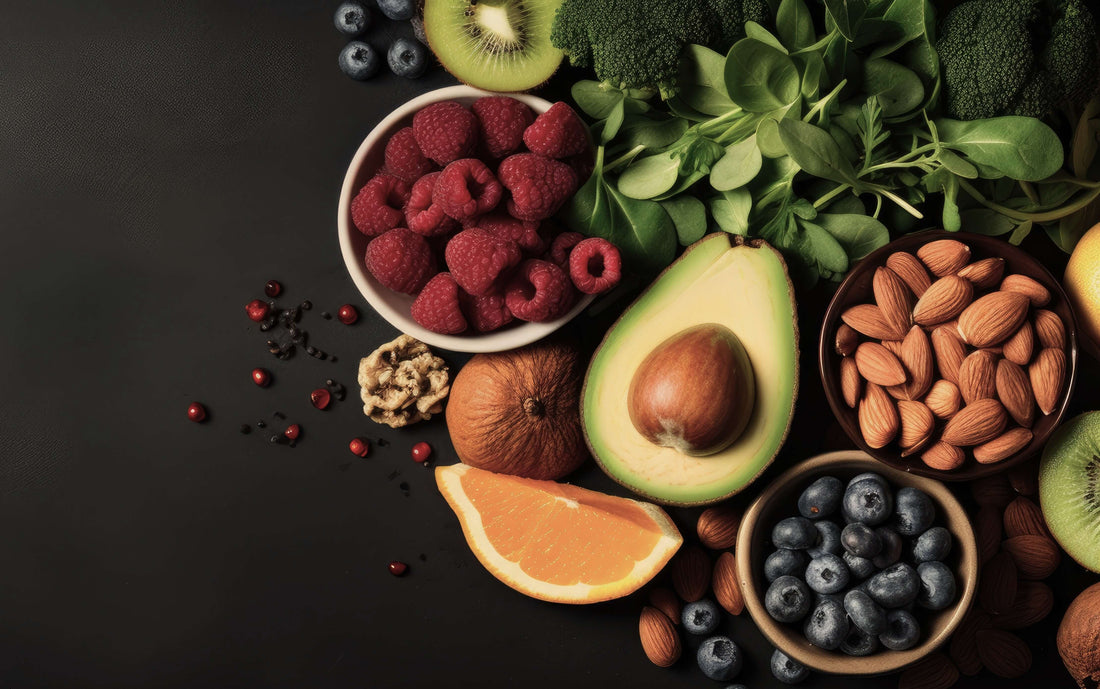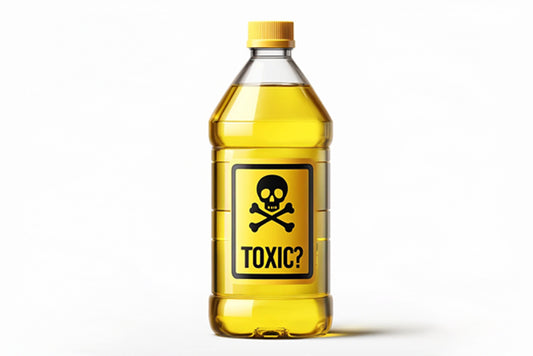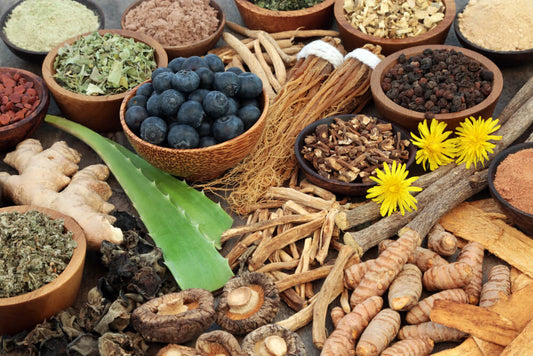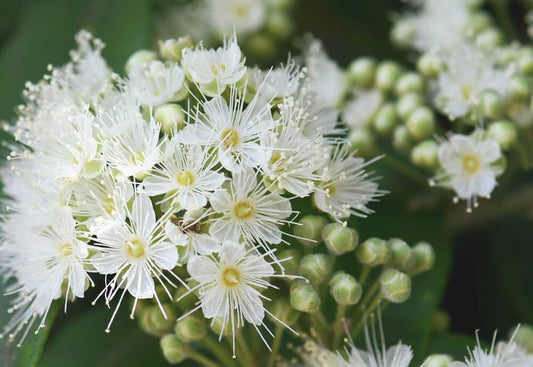
Antioxidant Superfoods: Boosting Health and Wellness Down Under
Imagine a world where the key to optimal health and wellness lies in the antioxidant food we consume daily. It may sound like a utopia, but in fact, it’s entirely possible to unlock the door to a healthier life through the power of antioxidants. Found in a variety of colourful fruits, vegetables, and other plant-based foods, these tiny yet mighty molecules possess the power to protect our bodies from chronic diseases, boost our immune systems, and promote overall well-being.
In this blog post, we will delve into the fascinating world of antioxidants, how they work in our bodies, and the plethora of health benefits they offer. We will also explore some of the most antioxidant-rich foods and beverages, including a few unique superfoods from Australia.
So, buckle up and get ready to embark on a journey to discover the extraordinary power of antioxidant food and its role in promoting a healthier, happier life.
Key Takeaways
- Antioxidants from a variety of whole foods protect cells and reduce inflammation, aging, and potential chronic diseases.
- Integrating antioxidant-rich foods into our daily diet can promote overall well-being.
- Australia is home to a range of unique superfoods with impressive antioxidant content that provide exciting flavours for dishes.
What are antioxidants, and why are they important for our health?
Antioxidants are molecules that protect cells from oxidative stress and free radicals, helping to prevent chronic diseases, boost the immune system, and promote overall well-being.
Antioxidants are vital molecules that ensure good health by shielding cells from damage induced by oxidative stress and free radicals. These harmful free radicals are unstable molecules that can damage our cells, leading to a cascade of negative effects, including inflammation, aging, and potentially chronic diseases such as cancer, heart disease, and age-related macular degeneration.
Thankfully, nature has provided us with an arsenal of antioxidants to protect our cells and maintain overall well-being. Antioxidant-rich foods, such as fruits, vegetables, and legumes, are abundant in naturally occurring antioxidants that help neutralise free radicals and reduce oxidative stress. Some examples of potent antioxidants include vitamin C, vitamin E, and beta carotene, which can be found in a variety of plant foods.
However, it’s not just about the amount of antioxidants we consume; the type also matters. For instance, vitamin E supplements typically only include one form (alpha-tocopherol), whereas there are eight chemical forms of vitamin E present in foods. This highlights the importance of obtaining our antioxidants from a diverse range of whole foods to ensure we’re benefiting from their full spectrum of protective effects.
In the quest for optimal health, antioxidants are our allies. Incorporating a wide array of antioxidant-rich foods into our daily diet allows us to utilise their protective abilities to safeguard our cells, ward off chronic diseases, and enhance overall wellness.

Health Benefits of Antioxidant-Rich Foods
The ingestion of most antioxidant-rich foods offers an array of benefits, such as protection from chronic illnesses and enhancement of overall well-being. From blueberries to dark chocolate, spinach to green tea, these nutrient-packed powerhouses hold the key to improved health and vitality.
Building a strong foundation for optimal health and wellness is possible by integrating a wide range of antioxidant-rich foods and beverages into our daily diet, thus aiding in disease prevention, including the prevention of chronic diseases such as cardiovascular disease, and enhancement of overall well-being.
Blueberries: Anthocyanin Powerhouse
Blueberries are a delicious and nutritious addition to any diet, boasting a wealth of benefits. Their rich anthocyanin content makes them a powerful antioxidant source, as these pigments are known to have a wide range of protective effects on human health.
Some of the benefits associated with blueberries include enhancing brain function, anti-inflammatory effects, sustaining strong bones, and reducing the risk of heart disease. A study even found that consuming one cup of blueberries daily for six months can reduce the risk of heart disease by 12 to 15 percent.
Blueberries, with their impressive nutrient profile and antioxidant properties, provide a delicious and handy means to enhance our daily antioxidant intake and foster overall health and wellness.
Dark Chocolate: A Delicious Source of Flavonoids
Dark chocolate is not only a delicious treat but also a surprising source of health-promoting antioxidants. Rich in flavonoids, these phytonutrients act as antioxidants and may have a role in cancer prevention, as well as aiding in safeguarding the body from oxidative damage caused by free radicals.
Interestingly, the antioxidant content in chocolate varies greatly, with one study finding that the highest antioxidant value among chocolate products was 14.98 mmol/100 g in a single dark chocolate sample. This highlights the importance of choosing dark chocolate with a high cacao content (at least 70 percent) to reap the maximum health benefits.
Feel free to savour a square or two of dark chocolate, not only to satisfy your sweet cravings but also to supply your body with a dose of health-boosting antioxidants.
Antioxidant-Rich Vegetables: Nature's Health Guardians
Vegetables are an integral part of a balanced diet, offering a multitude of vitamins, minerals, and other essential nutrients. Among these, many vegetables are rich in antioxidants, compounds that help protect our bodies from oxidative damage and chronic diseases. Let's take a closer look at some of these antioxidant powerhouses.
Broccoli: The Green Champion
Broccoli is a cruciferous vegetable known for its high antioxidant content. It's packed with vitamins C and K and contains a significant amount of the antioxidant sulforaphane, which has been linked to several health benefits, including improved heart health and digestion.
Spinach: The Leafy Powerhouse
Spinach, a dark leafy green, is high in vitamins A, C, and K, as well as the minerals iron and calcium. It's also rich in antioxidants, including lutein and zeaxanthin, which promote eye health.
Capsicums: The Colourful Antioxidant Providers
Capsicums, particularly the red variety, are an excellent source of antioxidants. They are rich in vitamin C and contain several phytochemicals and carotenoids, particularly beta-carotene, which has strong antioxidant properties.
Sweet Potatoes: The Root of Antioxidant Richness
Sweet potatoes are high in beta-carotene, which acts as a potent antioxidant. They are also rich in vitamins C and E, making them a great addition to any antioxidant-rich diet.
Tomatoes: The Juicy Antioxidant Source
Tomatoes are a great source of the antioxidant lycopene, which has been associated with heart health and cancer prevention. They are also high in vitamin C and potassium.
Artichokes: The Heart of Antioxidants
Artichokes are rich in antioxidants, including chlorogenic acid and cynarin. These antioxidants have been linked to benefits like improved digestion, heart health, and liver health.
By incorporating a variety of these antioxidant-rich vegetables into our diet, we can boost our antioxidant intake, promote overall health, and protect against various chronic diseases.
Antioxidant Beverages for Better Health
In addition to antioxidant-rich foods and taking antioxidant supplements alone, beverages like green tea and coffee can also provide a wealth of benefits when consumed in moderation. These popular drinks offer an alternative way to increase our daily antioxidant intake, and they’re widely available, making them a convenient choice for those seeking to enhance their overall well-being.

The Power of Antioxidants: How They Work
Green Tea: The Catechin Connection
Green tea is renowned for its numerous benefits, many of which can be attributed to its high concentration of catechins. These powerful antioxidants give this tea its distinctive flavour and colour while offering protection against a range of health issues.
Rich in catechins, it has a variety of phytochemical that functions as a potent antioxidant. With its anti-inflammatory, anticarcinogenic, and antimicrobial properties, green tea has been linked to numerous benefits, such as:
- Heart health
- Skin health
- Weight management
- Diabetes management
Coffee: A Surprising Source of Antioxidants
Many people might not associate coffee with good health, but this popular beverage is actually an unexpected source of antioxidants. The compounds found in coffee can help protect our bodies from oxidative damage, making it a surprising addition to the list of antioxidant-rich foods and beverages.
Coffee has been linked to various benefits, including:
- Increased energy levels
- Reduced risk of type 2 diabetes
- Improved brain health
- Overall health benefits
- Protection against Parkinson’s disease
These benefits are attributed to the antioxidants found in coffee, making it a valuable addition to a balanced, antioxidant-rich diet. Relish your morning java, knowing it not only jumpstarts your day but also supplies your body with a considerable dose of health-enhancing antioxidants.
Next time you savour your morning coffee or a refreshing cup of tea, pause to acknowledge the antioxidant benefits these drinks offer, which may contribute to maintaining healthy blood pressure, and take comfort in the fact that each sip nurtures your body.
Spices and Herbs: Flavourful Antioxidant Boosters
Spices and herbs not only add a burst of flavour to our meals but are also rich in antioxidants, making them a valuable addition to any healthy diet. Some examples of antioxidant-rich spices and herbs include:
- Clove
- Peppermint
- Allspice
- Cinnamon
- Oregano
- Thyme
- Sage
- Rosemary
- Saffron
- Estragon
- Powerful anti-inflammatory properties
- Strong antioxidant properties
- Reduction of inflammation
- Alleviation of pain
- Improvement of overall health
To increase the absorption of curcumin and maximise its health benefits, it is recommended to combine turmeric with fats or other spices, such as black pepper. Adding antioxidant-rich spices and herbs to our meals not only intensifies the flavours of our dishes but also augments our daily intake of these potent health-enhancing compounds.
Nuts and Seeds: Nutrient-Dense Antioxidant Treasures
Nuts and seeds are nutrient-dense foods that contain beneficial antioxidants, such as vitamin E and selenium, offering numerous health benefits. Walnuts, for example, have an impressive antioxidant content of 33.3 mmol/100 g, making them a valuable addition to any antioxidant-rich diet.
Various nuts and seeds are packed with fibre, vegetarian protein, and heart-healthy fats, which, when combined with their antioxidants, provide a powerful protective effect against heart disease. It’s worth noting that some nuts, like walnuts, chestnuts, peanuts, hazelnuts, and almonds, have higher antioxidant values when analysed with the pellicle (skin) intact.
Integrating a diverse range of nuts and seeds into our daily diet allows us to relish their delectable taste and satisfying crunch while gaining from their nutrient-packed, antioxidant-rich properties.

Olive Oil: Liquid Gold of Antioxidants
Olive oil, often referred to as liquid gold, is renowned for its numerous health benefits. It's not only a versatile culinary ingredient but also a significant source of antioxidants, making it an excellent addition to an antioxidant-rich diet.
It contains vitamin E and phenolic compounds like oleuropein and hydroxytyrosol. These powerful antioxidants are known to combat oxidative stress by neutralizing harmful free radicals, contributing to the prevention of chronic diseases, and promoting overall well-being.
Extra virgin olive oil, in particular, is of the highest quality and contains the most antioxidants. It is made from pure, cold-pressed olives, which allows it to retain its rich nutrient content. Apart from its antioxidant properties, it's also rich in monounsaturated fats, specifically oleic acid, which has been associated with reduced inflammation and a lower risk of heart disease.
Other Edible Oils: Hidden Antioxidant Sources
While olive oil is often hailed for its antioxidant properties, other vegetable oils shouldn't be overlooked. For instance, canola oil is rich in alpha-linolenic acid, a type of omega-3 fatty acid, and vitamin E, both of which have antioxidant properties. Similarly, sunflower oil is a good source of vitamin E, an antioxidant that protects cells from damage by free radicals.
Avocado oil, too, is high in lutein, an antioxidant that may support eye health. Lastly, flaxseed oil contains lignans, which are unique fibre-related polyphenols that provide us with antioxidant benefits. Hence, diversifying your oil use in cooking can provide a broader range of antioxidants and enhance your overall health.
Antioxidant Superfoods: Gems from Australia
Australia is home to several antioxidant-rich superfoods, including indigenous fruits and vegetables that provide unique health benefits. These superfoods, like their counterparts from other parts of the world, offer an array of health-boosting properties, such as:
- reducing oxidative stress and inflammation
- supporting heart health
- improving brain function
- promoting skin health
- facilitating healthy digestion
Some of these indigenous superfoods include the Australian finger lime, Kakadu plum, and quandong, which are rich in antioxidants and other essential nutrients. These unique fruits not only contribute to the diverse range of antioxidant-rich foods available but also offer distinct flavours and textures that can be incorporated into various dishes and recipes.
Embracing the bounty of antioxidant-rich superfoods native to Australia can provide a fresh and exciting way to boost our daily antioxidant intake while supporting local growers and producers. So, why not venture out and explore the unique superfoods that Australia has to offer?
Conclusion
In the quest for optimal health and wellness, consuming a variety of antioxidant-rich foods and beverages is paramount. From the vibrant colours of fruits and vegetables to the comforting warmth of tea, our daily choices, including our fruit and vegetable intake, can significantly impact our well-being and help to prevent chronic diseases.
Consuming a diverse range of foods, beverages, dietary supplements, and antioxidant supplements can contribute to overall health and wellness, and help prevent chronic diseases and promote well-being.
By making mindful choices and incorporating a variety of these antioxidant powerhouses into our daily diet, we can take charge of our health and embark on a journey towards optimal well-being, one delicious bite at a time.
Support Your Antioxidant Intake with Superfoods Australia
At Superfoods Australia, we pride ourselves in offering a wide range of superfoods that are nutrient dense and support healthy living. Many of our products are rich in antioxidants – check out how whole range here.
Frequently Asked Questions
What foods are highest in antioxidants?
Broccoli, spinach, carrots, potatoes, artichokes, cabbage, asparagus, avocados, beetroot, radish, lettuce, sweet potatoes, squash, pumpkin, collard greens and kale are all high in antioxidants, as is the use of lots of spices in cooking.
What is the most powerful antioxidant?
Astaxanthin is the most powerful antioxidant, up to 6000 times stronger than Vitamin C and 3000 times stronger than Resveratrol. Its remarkable antioxidant activity prevents diabetes, major cardiovascular events, diseases, and neurodegenerative disorders, and it is able to reach every part of our cells, including crossing the blood-brain barrier to protect the brain and nervous system.
What are the top 10 highest antioxidant foods on earth?
The top 10 highest antioxidant foods on earth are raw cacao, chia seeds, goji berries, blueberries, pecans, artichokes, kidney beans, cranberries, blackberries, and strawberries.
What fruit is highest in antioxidants?
Wild blueberries have the highest amount of antioxidants among all commonly consumed fruits, boasting 13,427 total antioxidants per cup. This is due to their abundance of vitamins A & C, plus flavonoids like quercetin and anthocyanidin.














